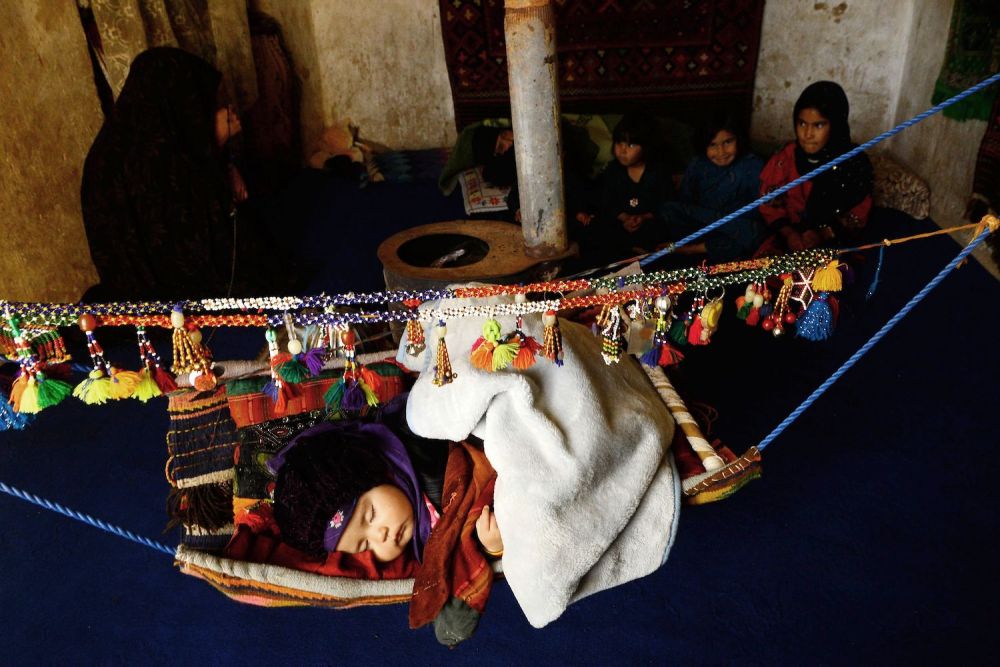KABUL—For a woman in the last few weeks of her pregnancy, 24-year-old Sohaila walks surprisingly quickly as she invites us into the first-floor guest room of her traditional Afghan house in the outskirts of Kabul in October.
The large yet delicately decorated room will serve as her makeshift maternity ward when she is scheduled to go into labor in three weeks. Sohaila, who requested her name be changed, goes over her plans as she, her grandmother, the translator, and I take seats on the many toushaks (long traditional cushions used for seating) that will be used as her bed during the delivery. “We will cover everything with a clean cloth,” Nooriya, Sohaila’s 62-year-old grandmother whose name has also been changed, explains. “Two women from the family will assist me with her delivery.” Although never formally trained, the senior woman has been a midwife for most of her life, having learned the skill from her mother and aunts over the years.
In a rather worrying trend, an increasing number of women like Sohaila are turning back to traditional methods of home birth in Afghanistan, over the fear of both renewed Taliban violence and catching the coronavirus in a clinic or hospital.
“Aside from the damage caused by the disease itself, COVID-19 negatively affected all the health services in Afghanistan,” Akmal Samsor, a spokesperson of the Afghan Ministry of Public Health, said in an October interview. “We admit that our initial communications around the pandemic created more fears,” he said. “As a result, people were afraid to utilize essential services. Our OPD [outpatient department] dropped by 30 percent, and our IPC [inpatient care] was down by 50 percent in the first four months of the pandemic.” The hospital beds, he said, “were empty.”
The same goes for maternity wards. Shafiqa Babak, a doctor who is chief of quality assurance at the Rabia Balkhi Hospital for women in Kabul and who also runs a private clinic, observed a significant drop in patient numbers. The hospital even created a special ward for pregnant women who were infected by the virus, well equipped with all medical support devices, many donated by international organizations and donor countries. But it failed to attract many expectant mothers. Babak, who had to close her private clinic during the worst months of the pandemic, observed many cases where women opted for home births instead.
Read full story on Foreign Policy
